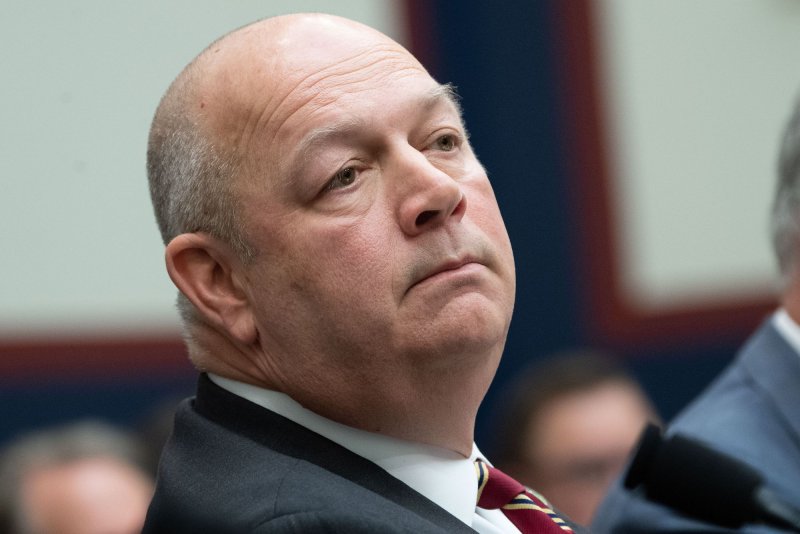1 of 2 | Stephen Dickson, administrator of the Federal Aviation Administration, testifies Wednesday during a House Transportation and Infrastructure Committee hearing on the Boeing 737 MAX 8 and it's FAA certification. Photo by Kevin Dietsch/UPI |
License Photo
Dec. 11 (UPI) -- The Boeing 737 Max will not fly until regulators determine it is safe and pilots are competent in flying the plane, a House committee was told Wednesday.
Administrator Paul Dickson of the Federal Aviation Administration testified before the House Transportation and Infrastructure Committee, and said that U.S. regulators must be assured that pilots are adequately versed in handling the plane before it is reinstated to fly in U.S. skies. The committee is examining the Federal Aviation Administration's oversight of 737 Max certification.
Ed Pierson, a former Boeing manager who raised concerns about potential safety flaws with the now-grounded 737 Max airliners also testified before the committee on Wednesday, Pierson, who worked as a senior manager at Boeing's Renton, Wash., factory before retiring last year, said there was a push by the company to increase monthly production of the 737 Max -- and it led to some employees working seven days a week, and in some cases performing jobs for which they had no training.
According to prepared remarks, Pierson testified that a "factory in chaos" contributed to failings that investigators believe resulted in two crashes overseas and grounded the plane model worldwide. The 737 Max has yet to return to the skies.
"I remain gravely concerned that the dysfunctional production conditions may have contributed to the tragic 737 Max crashes and that the flying public will remain at risk unless this unstable production environment is rigorously investigated and closely monitored by regulators on an ongoing basis," Pierson said in his written remarks.
Boeing spokesman Gordon Johndroe said the company was aware of Pierson's concerns and took "appropriate steps to assess them." He said, however, any suggestion that they were linked to the crashes is "completely unfounded."
"Mr. Pierson raises issues about the production of the 737 Max, yet none of the authorities investigating these accidents have found that production conditions in the 737 factory contributed in any way to these accidents," Johndroe said. "And the suggestion of such a linkage is inconsistent with the facts that have been reported about these accidents."
Pierson's testimony came as the FAA released an internal analysis explaining the agency's decision to allow the 737 Max to fly after the first crash of a Lion Air plane in October of 2018. The review suggested that a 737 Max could be expected to crash, on average, once every two or three years without design changes.
Another 737 Max, flown by Ethiopian Airlines, crashed in March 2019. A total of 346 people were killed in the two crashes.















